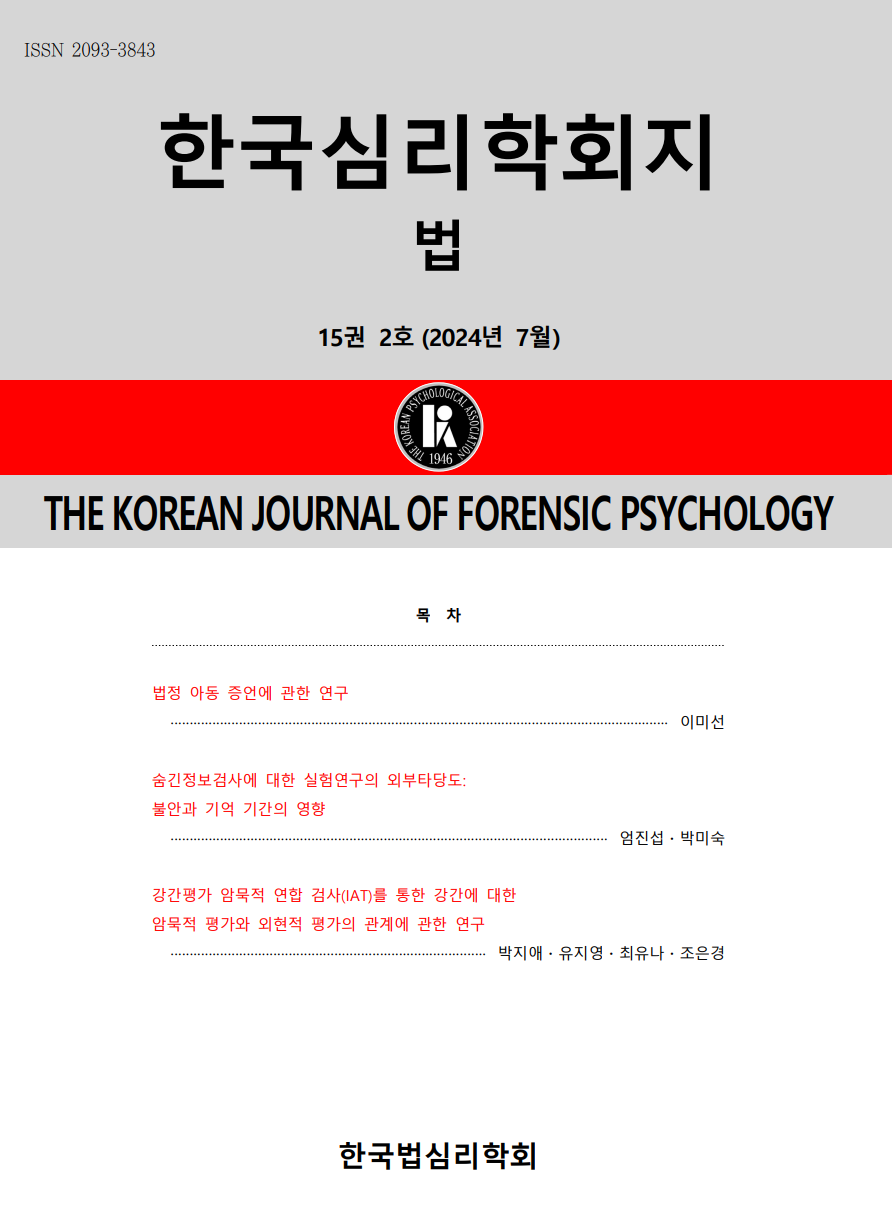 ISSN : 2093-3843
ISSN : 2093-3843
Recently, the Korean Constitutional Court ruled that the provisions allowing video-recorded statements of underage sexual abuse victims as evidence were unconstitutional. As child victims have to participate in the cross-examination, the role of intermediaries might be increased to aid child witnesses’ communication in court. Therefore, this study aims to examine how an intermediary’s intervention affects mock jurors’ perception of statement credibility. Based on Expectancy Violation Theory, we hypothesized that when a lawyer asks inappropriate questions to a child witness during cross-examination, if the child’s statement is inconsistent despite the intervention of an intermediary, mock jurors would perceive the child as less credible. In a 2(intermediary present vs. not present) x 2(statement consistent vs. inconsistent) between-subjects experiment, 186 adult participants read one of the four sexual abuse case scenarios and then judged the credibility of a child witness. As a result, the credibility was judged lower when the child’s statements were inconsistent than when they were consistent. The intervention of the intermediary did not affect the mock juror’s perception of the child’s anxiety level, and there was no expectancy violation effect by the intermediary. Based on these results, the problems of child witness cross-examination and the need for a better understanding of the intermediary’s role were discussed.